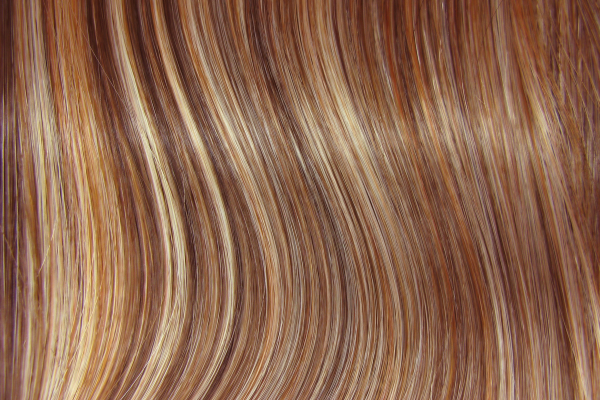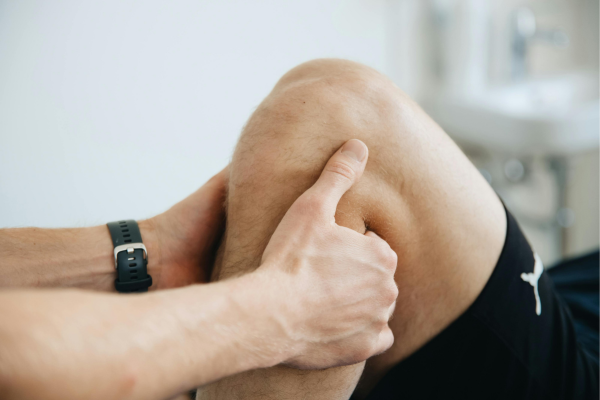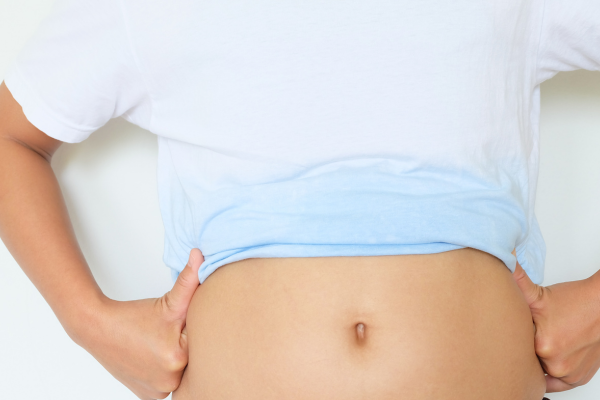Gut health, collagen and hair health

Why Collagen Is Important for Hair: Scientific Evidence and Benefits
Collagen is a protein that makes up a large part of the body's structural tissues and is an important building block of skin, bones, joints and even hair. It is the most abundant protein in the human body and is responsible for providing structure and strength to tissues. However, while collagen is often linked to skin elasticity and joint health, research has shown that it also plays an important role in hair health and growth.
In this article, we explore why collagen is important for hair and how it can affect hair growth and strength, based on scientific research.
Is there collagen in hair?
Yes, collagen is found in hair shafts , but in much smaller amounts than the proteins that primarily make up hair, such as keratin . Collagen is a structural protein that plays an important role in supporting hair follicles and surrounding tissues, which indirectly affects hair growth and health. However, collagen is not a major component of the hair shaft itself, but is more associated with the surrounding structure and processes that support hair growth.
Here are some important ways in which collagen affects hair:
1. Support for hair follicles
Collagen is found in large quantities in the dermis , the middle layer of the skin where hair follicles are located. Collagen helps provide structural support and flexibility to hair follicles. If collagen production decreases, for example with age, hair follicles can lose their strength and efficiency, which can lead to weaker hair growth and eventual hair loss.
2. Protection against free radicals
Collagen also has antioxidant properties, which help protect cells from damage caused by free radicals. These free radicals can negatively affect both skin and hair health by causing oxidative stress. Since collagen helps protect hair follicles from this type of damage, it can indirectly support healthier hair.
3. Promotes healthy hair growth
Collagen can stimulate the production of keratin, the primary protein in hair. A sufficient amount of collagen in the body can help create a better environment for hair growth by supporting the overall health of the hair follicle and increasing the supply of nutrients to hair growth.
4. Improved blood circulation
Since collagen helps keep blood vessels healthy, it can indirectly affect blood flow to the hair follicles. Better blood flow means that the hair follicles receive more nutrients and oxygen, which promotes hair growth.
Although collagen is not a major component of the hair shaft itself, it plays an important role in supporting hair growth and keeping hair follicles healthy. It helps strengthen the structure around hair follicles, protecting against damage and creating a better environment for hair growth. Therefore, collagen can contribute to healthier and stronger hair, even though it is not a direct building block of the hair shaft itself.
So if you are interested in improving your hair health, collagen may be an important component to consider as a dietary supplement or through collagen-rich foods like bone broth, fish, or eggs.
What is collagen and how does it work?
Collagen is a fibrous protein made up of amino acids, the most prominent of which are glycine, proline, and hydroxyproline. There are several types of collagen in the body, but type I collagen is the most common and is the one found in large quantities in the skin, hair, and nails.
Collagen acts as a kind of “glue” that holds tissues together and provides structural integrity. It strengthens the structure of the skin, makes blood vessels more flexible, and is essential for the function of cartilage in joints. Collagen in hair follicles plays a particularly important role by supporting the hair growth cycle and nourishing the cells responsible for producing new hair.
Collagen and hair growth
Hair growth is a complex process that involves multiple factors, including genetics, hormones, nutrients, and the structure of the hair follicles. Collagen directly affects several of these factors by providing the necessary nutrition for the hair follicles and supporting their function. Here are some important ways that collagen contributes to hair health:
1. Improves hair follicle health
Hair follicles are the tiny “containers” from which hair grows. Collagen is a crucial component of the hair follicle’s extracellular matrix – the structure that surrounds and supports the cells in the hair follicle. When collagen levels in the body decrease, which happens naturally with age, the hair follicle can become weaker and less efficient, which can lead to thinning hair or hair loss.
A study published in the Journal of Investigative Dermatology found that collagen helps strengthen hair follicles and may help stimulate hair growth. Weakened hair follicles can inhibit hair's ability to grow, making collagen an important component in maintaining a healthy hair growth cycle.
2. Protects against hair loss and loss of hair strength
Collagen also has an antioxidant effect that protects the skin and hair from damage caused by free radicals. Free radicals arise as a consequence of environmental factors such as UV radiation, pollution and other external stressors. These free radicals can cause inflammation and damage to the hair follicles, leading to thinning hair and hair loss.
A study published in Dermatology and Therapy showed that collagen peptides may help prevent hair loss by reducing oxidative stress, which protects hair follicles from damage and promotes hair growth.
3. Promotes the production of keratin
Keratin is the primary protein in hair, and it is responsible for the strength and structure of hair strands. Collagen indirectly contributes to hair strength by promoting the production of keratin. Since collagen contains amino acids that are necessary for keratin production, collagen intake can help strengthen hair and improve its appearance.
According to a study published in the Journal of Clinical and Aesthetic Dermatology, collagen peptide supplementation can increase keratin production and improve hair quality in people with thin or damaged hair.
Collagen and skin health – an indirect benefit for hair
Because hair growth is so closely related to skin health, the effect of collagen on the skin also has an indirect impact on hair. Collagen is a key component of the skin and helps maintain its structure, elasticity and moisture levels. A healthy skin environment promotes healthy hair follicles, which in turn supports better hair growth.
As collagen production declines with age (approximately 1% per year after the age of 20), skin can lose its firmness and elasticity. This can prevent hair follicles from getting the support they need to produce healthy hair. Supporting collagen production through supplements or collagen-rich foods can help maintain the health of both skin and hair.
Collagen in the diet and as a dietary supplement
To reap the benefits of collagen for hair, it can be beneficial to include collagen in your diet. Collagen is found naturally in foods like bone broth, chicken skin, and fish. However, many people also choose to take collagen as a dietary supplement in powder form to ensure adequate intake.
A clinical study published in Skin Pharmacology and Physiology showed that taking collagen peptides can improve both skin elasticity and hair texture, suggesting that collagen has a systemic effect on skin and hair. It is important to note that further research is needed to determine exactly how much collagen is needed to produce visible results, but initial results point to positive effects.
Conclusion
Collagen plays a central role in maintaining the strength and health of hair. By supporting hair follicles, protecting against free radicals, and promoting the production of keratin, collagen helps provide hair with the nourishment and structure it needs to grow strong and healthy. Adding collagen to your diet or as a supplement can be an effective way to maintain healthy hair, especially as you age and your body’s natural collagen production declines.
However, it is important to remember that collagen is part of a larger whole when it comes to hair care. A balanced diet, good hair care routines, and a healthy lifestyle are also crucial to keeping your hair in the best possible condition.
Why is good gut health important for healthy hair?
Gut health and hair growth are linked in a way that many may not immediately understand, but research has shown that healthy gut function plays a central role in supporting healthy hair. The gut is not only responsible for processing and absorbing nutrients, but it also has a direct impact on the body’s overall well-being, including hair growth and health. Here, we explain how good gut health affects hair and why it’s so important.
- Nutrient Absorption and Hair Health. The gut plays a critical role in the absorption of nutrients from the food we eat. When the gut is functioning optimally, it can effectively absorb essential vitamins and minerals that are crucial for hair growth and hair structure. If gut health is impaired, such as in conditions such as dysbiosis (imbalance in the gut flora), low nutrient absorption or intestinal inflammation , this can lead to nutritional deficiencies, which negatively affect hair growth. Some important nutrients that rely on healthy gut function to be absorbed effectively include:
- B vitamins (such as B12, biotin, and folate) : These are important for hair growth and health. A deficiency in B vitamins can lead to hair loss and thinning hair.
- Zinc : A mineral that is essential for hair follicle function. Zinc deficiency has been linked to hair loss and loss of hair strength.
- Vitamin D : A deficiency in vitamin D can contribute to hair loss, especially in conditions like telogen effluvium (a form of stress-related hair loss).
- Iron : Iron deficiency is a common cause of hair loss, especially among women.
If the intestines are not functioning efficiently and cannot absorb these important nutrients, it can result in nutritional deficiencies and negatively affect hair health.
2. The intestinal flora and the immune system
The gut flora, or microbiome, is the collection of bacteria, fungi, and other microorganisms that live in the intestines. This microscopic world has a powerful impact on many aspects of our health, including our immune system and levels of inflammation. A healthy and balanced gut flora helps support the immune system and reduce inflammation in the body.
If the gut flora becomes unbalanced, which can happen with illness, poor diet, or long-term use of antibiotics, this can create an inflammatory state in the body. Inflammation can in turn affect hair growth and even cause hair loss. Autoimmune diseases that affect the intestines, such as Celiac disease (gluten intolerance) or Crohn's disease, can also affect hair due to both nutritional deficiencies and the inflammation these conditions cause.
3. The gut's influence on hormones
Gut health and hormonal balance are closely linked. The gut plays an important role in the production and regulation of several hormones, including those that affect hair growth, such as cortisol (the stress hormone), estrogen , testosterone , and thyroid hormones . An imbalance in the gut flora or impaired gut function can disrupt hormone production, which can lead to various hair problems, such as hair loss.
For example, prolonged stress can negatively affect the gut flora and raise levels of cortisol , which is linked to hair loss, especially in stress-related conditions like telogen effluvium . Hormonal imbalances, such as those with PCOS (polycystic ovary syndrome) or hypothyroidism (low thyroid function), can also affect gut health and worsen hair problems.
4. Gut health affects inflammation and antioxidant status
Inflammation is another key factor that affects both the gut and hair. A healthy gut flora helps regulate inflammation levels in the body, which is important for avoiding chronic low-grade inflammation. When the body suffers from inflammation, this can affect the hair growth cycle and lead to hair follicle loss.
According to a study published in the Journal of Clinical Medicine, inflammatory conditions in the gut have a strong link to skin and hair diseases. The gut's ability to balance inflammation and produce antioxidants is important for keeping hair follicles healthy and preventing hair loss caused by oxidative stress.
5. Gut health and intestinal cells
The cells in the gut (enterocytes) and in the hair follicle share similar cell biology and benefit from similar nutrients and signals. A healthy gut wall and a well-functioning digestive system can therefore contribute to better cell production and improved cell growth in the hair. If the gut cannot function properly, the body's ability to regenerate new cells in both the gut wall and hair follicles is affected, which can inhibit hair health and growth.
Conclusion
Good gut health is crucial for healthy hair, and there are several ways in which the gut affects hair growth and hair quality. When the gut is not functioning optimally, the body’s ability to absorb important nutrients is affected, hormonal balance is disrupted, inflammation increases, and the microbial flora becomes unbalanced – all factors that can contribute to hair loss and loss of hair strength and volume.
To support both gut health and hair growth, it is important to eat a balanced diet rich in fiber, probiotics and prebiotics, which support healthy gut flora, and to manage stress and ensure you get enough sleep and physical activity. In case of problems with hair loss or gut-related problems, it is always a good idea to consult a doctor for further advice.
- Tags: Hår/Hair Kollagen/Collagen Läckande tarm/Leaky gut maghälsa/Digestive health Tarmhälsa/Gut health








